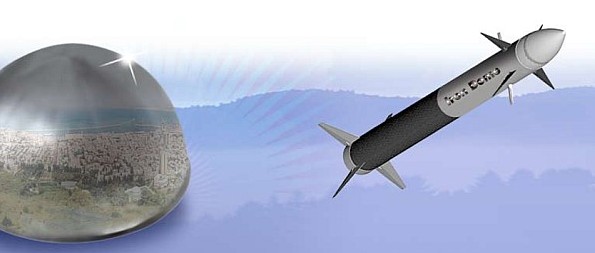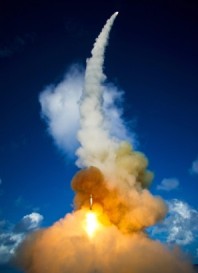Europe’s missile shield: NIE casualty?
By Mark Thompson, Time, December 6, 2007
TThat the new U.S. intelligence assessment of Iran’s nuclear program has put the kibosh on hawkish calls for a military response has been discussed to death, but there’s been very little focus on a second potential casualty: the U.S. plan to base ground-based missile defenses in Poland and the Czech Republic. The plan to station interceptor missiles in Poland and tracking radars in the Czech Republic is regarded warily by citizens of those countries, and with outright hostility by the Russians who see it as aimed at blunting their own missile capability in the event of a showdown with the U.S. The plan has helped freeze U.S.-Russia ties to Cold War levels of enmity, with President Vladimir Putin just last week suspending Russia’s participation in 1990s Conventional Forces in Europe treaty.
Against the barrage of criticism from the Russians, Pentagon officials have always insisted that the purpose of the missile-defense system is to protect Europe and the U.S. from an Iranian missile attack. “It’s not the Russians that we’re worried about,” Air Force Lieutenant General Henry “Trey” Obering, chief of the Pentagon’s Missile Defense Agency, said over breakfast earlier this year. “It is the Iranian missiles that we’re worried about.” But if the best those missiles could carry is conventional explosives, the case for deploying the missile defense system in the face of the heavy diplomatic cost and financial burden ($4 billion through 2013) becomes increasingly dubious. For one thing, the Pentagon faces mounting bills of tens of billions of dollars to “reset” the U.S. military — replacing everything worn out in Afghanistan and Iraq — over the coming decade. [complete article]
Russia alleges U.S. ‘rollback’ on anti-missile plan
By Peter Finn, Washington Post, December 6, 2007
The United States has backed away from proposals it made orally in October to allay Russian fears about the deployment of a missile defense system in Eastern Europe, Russia’s foreign minister, Sergei Lavrov, alleged Wednesday.
Lavrov said an oral proposal to permanently station Russian officers at sites in Poland and the Czech Republic to ensure that the system’s radar would not be used to peer into Russian airspace was withdrawn when the United States submitted its proposals to Moscow in writing last month.
“We received the document, and unfortunately a serious rollback from what we agreed upon was evident,” Lavrov said at a news conference Wednesday in his first detailed comments on the U.S. written proposals. “The issue no longer concerns the permanent presence of Russian officers at possible facilities . . . in the Czech Republic and Poland.” [complete article]
— I’m not sure why I haven’t read anyone else make this observation, but there’s always seemed to me to be a glaring contradiction that the administration on the one hand asserts that Iran will never be allowed to possess nuclear weapons, while on the other hand argues to its European allies that they need a missile defense shield for protection against Iranian ballistic missiles. Either the shield was always presumed to be unnecessary or it was always presumed that efforts to prevent Iran acquiring nuclear weapons would fail. The Pentagon’s claim that the “missile-defense program is not geared to any kind of specific defense against a specific weapon,” is baloney.


 he White House will shelve Bush administration plans to build a missile-defense system in Poland and the Czech Republic, a move likely to cheer Moscow and roil the security debate in Europe.
he White House will shelve Bush administration plans to build a missile-defense system in Poland and the Czech Republic, a move likely to cheer Moscow and roil the security debate in Europe.